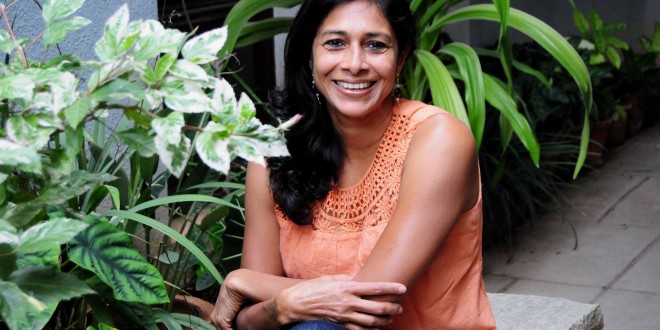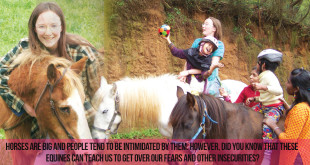“In an era when the spotlight was on P.T. Usha, Reeth Abraham carved a niche for herself with outstanding national and international performances. Through a career spanning 16 years, between 1976 and 1992, this national champion in long jump and heptathlon won many laurels in track and field events, including an Arjuna Award in 1997. Archana Shenoy meets the outstanding athlete on behalf of Vashti Woman. “
Growing up in Mysore and studying in Christ the King Convent, Reeth Abraham lived to run, jump and compete on the track. The sports field was her oyster and when she later moved to Bangalore’s Maharani College, her passion burned brighter. Under the tutelage of Sunil, her coach, who later became her husband, she blossomed into a star athlete. Today the Arjuna awardee and National Champion in track and field looks back on a rich and fulfilling athletic career with great satisfaction but rues the fact that young people are not drawn to sport in a big way.
Even after she hung up her boots, her passion for sport continued. Reeth began competing at the Masters (senior) level, where she continued to excel. “When I went to the World Masters, it was to experience the competition as a senior athlete, as the hunger for completion was still there.” In the seven World Masters competitions that she participated in, she won a bronze in 2003; in the recent edition in 2011, she won silvers in triple jump and long jump, missing the triple jump gold by two centimeters. Just a few months ago, at the same tournament, she brought home a gold in triple jump.
Reeth co-founded Clean Sports India (CSI) with like-minded athletes like Vandana Rao and Ashwini Nachappa. The organisation’s aims include cleaning up Indian sports to make it free of drugs, create a healthy, competitive atmosphere and shaking up a moribund official setup.
“The people who manage sports are not there to promote sports, but themselves…In 20 years the scenario has not improved.”
After being an athlete of National and International repute you have now embarked on a new journey in life. Tell us how you came to be involved in Clean Sports India.
Reeth: The administration of most of the sports federations and associations in the country has gone from bad to worse. Nothing has changed since the time I quit high-level competitions in the early 90‘s. The mismanagement and the callous attitude of the administrators holding on to positions merely for the seat and not in the interest of the athletes got ten, former like-minded sportspersons like me to form the movement CLEAN SPORTS INDIA. It basically aims to bring in people with passion into sports administration and to see improved performances of the athletes and help them achieve their dreams. I am not just involved, but one of the founder members of CSI.
Why did you feel the need to be a part of this movement? Are there any particular incidents (that may have happened with you) that provoked you to be part of it?
Reeth: As I mentioned earlier, the pathetic functioning of the state associations and national federations provoked us to start Clean Sports India. Even though there is so much talent in the country, the youngsters do not want to take up sports seriously. The people who manage sports are not there to promote sports, but themselves. In 20 years the scenario has not improved, neither has the performance of the athletes.
How has the journey for Clean Sports India been this far? Have you made any progress in changing the system to the format that you have envisioned?
Reeth: The journey for CSI, since it was launched 3 years ago, has been quite fruitful. If the readers could log on to our website cleansportsindia.org they would get a fair idea of what we have been upto. In short, we have had awareness-runs in major cities, held press-meets and conferences. We have also contested in the elections. When the movement was launched, most administrators – especially the ones who were holding positions in the federations – thought that the movement would die a natural death. But now they are threatened.
CSI would surely like to take credit for the change that is happening in the sports arena and the positive way things are working out in the Indian Olympic Association. The progress is slow but sweet.
Lets rewind a bit…how did you take to athletics? And why did you choose track events?
Reeth: The school I studied in i.e. Christ The King convent in Mysore, totally encouraged sports and I took to it passionately from the age of 12. Luckily for us, during our times sports was the only extra curricular activity, which I thoroughly enjoyed.
My four sisters too have represented the state, university and country in various games. Initially I did participate in various games including athletics and represented the state and Mysore University in kho kho; and Mysore University in basketball and in athletics too. But in 1980 preparation for the 1982 Asian games had begun and at that point I had to make a choice to concentrate on one sport and specialize in that.
I chose track and field mainly because it fascinated me and secondly because it was an individual sport. There is not a single day that I have regretted making this choice.
How was sports during your time? Can you briefly describe the struggles that you underwent when you were actively participating?
Reeth: I took to sports initially just out of pure passion and enjoyed every part of it. I slowly started competing and was selected to represent the state in the junior nationals. Though there was no systematic training and the facilities were not good, we never complained. We made the best of what was available. No dreams of where I would go or had to reach, but I simply enjoyed every day of sports activities.
Beginning of 1980, I was told that if I trained harder and systematically I could get into the Indian team and represent the country at the 1982 Asian Games which were to be held in New Delhi. I did represent the country at the 1982 Asian Games – my first International exposure – and after that that was no looking back till I quit from high level competitions in 1992.
Many of your accolades have been won after you became a mother. How did motherhood motivate you?
Reeth: I was the national champion in Heptathlon till I became a mother in 1988; after which I took to long jump and 100 meters hurdles, and became the national champion in both events with the national record in long jump.
Pregnancy and childbirth makes most women mentally and physically stronger. During my pregnancy I realized that I had not achieved my dreams and had not performed to my capacity and I was only 25 years old. So I decided that I would make a come back; though the journey was tough it was very satisfying.
Can you name some instances that have been the highpoints of your career?
Reeth: Every training day, every competition and the medals I won were special. There is not a day that I have regretted taking to sports seriously. But I know that I could have done much better with better facilities in the country.
The most memorable instances would be winning the national gold in Long Jump after pregnancy and childbirth, and also breaking the national record in long jump. My daughter was barely 10 months old then.
Describe Reeth Abraham the person. We’ve always read about and seen you as an athlete. How would one relate to you more on a personal level?
Reeth: That’s for you to judge; and tell me what you think. You should speak to my family, friends and kids to find out.
Otherwise, I would say I’m hard-working, self-motivated, give 100 % in whatever I do. Don’t give up till the job is completed, socially quite responsible and non controversial.
If not for athletics what would you have done in life?
Reeth: Taken up another sport, maybe tennis or badminton. Since I am self motivated, I prefer an individual game to team game. Given another choice I would like to be born as an athlete and do it all over again, but much better.
Who/what has been your biggest inspiration?
Reeth: I admired all world-class sportsmen and dreamed of achieving results like them. Unfortunately, those days we had only books to read about the champions and their lifestyles. Now, through the Internet we can get all the required information to improve one’s performance.
How different is life for you post-retirement?
Reeth: Who says I have retired, I am still enjoying my sporting life. I have been competing since 1998 in the Masters (veterans) in the world and Asian level and winning medals. Recently I won a gold in triple jump in the World Masters held in Brazil in October 2013.
Tell us a bit about your hobbies, likes and dislikes, any idiosyncrasies?
Reeth: Frankly, I have very little time for hobbies, especially when you are working full time and have to take care of a family. But I love to read, listen to music, and to relax and spend time with family and friends.
What message would you like to send out to the future athletes of India?
Reeth: The life of a sportsperson is totally different from that of a normal human being. If a sportsperson has to achieve great results and reach the top a lot of sacrifices have to be made. Determination, dedication, and will-power with a positive attitude will surely go a long way.
There are no shortcuts or easy way out to achieve good results and good performances.
Archana Shenoy holds a Post Graduate Diploma in Journalism from Media Center, Bangalore. She is an enthusiastic media professional and is an editorial consultant working for several publication houses in India.
 Juliet Thomas Christian Articles for Young Women
Juliet Thomas Christian Articles for Young Women


